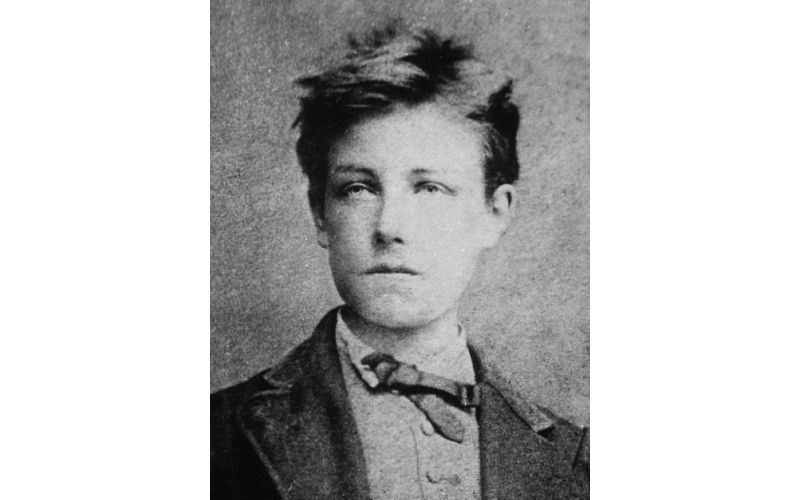100 Heroes: Arthur Rimbaud
The gay man who was one of the world's most important libertine poets.

Arthur Rimbaud was a French poet known for his influence on modern literature and arts, prefiguring surrealism.
Born in Charleville, he started writing at a very young age and excelled as a student, but abandoned his formal education in his teenage years to run away from home to Paris amidst the Franco-Prussian War.
During his late adolescence and early adulthood he produced the bulk of his literary output, then completely stopped writing literature at the age of 20, after assembling his last major work, Illuminations.
Rimbaud was known to have been a libertine and a restless soul, having engaged in a hectic, at-times-violent romantic relationship with fellow poet Paul Verlaine, which lasted nearly two years. After he stopped caring about literature, he traveled extensively on three continents as a merchant and explorer, until his death from cancer just after his thirty-seventh birthday.
As a poet, Rimbaud is well known for his contributions to symbolism and, among other works, for A Season in Hell, a precursor to modernist literature.
Early Life
Arthur Rimbaud was born in 1854 the provincial town of Charleville in the Ardennes department in northeastern France.
When Arthur was nine, he wrote a 700-word essay objecting to his having to learn Latin in school – vigorously condemning a classical education as a mere gateway to a salaried position.
Encouraged by a tutor, Rimbaud began to write original verse. His first poem was published at the age of 15, in 1870.
As the Franco-Prussian war erupted, daily life was disrupted, and Rimbaud discovered his rebellious streak – running away from home and defying the control of his strict mother.
London
Seeking to connect with established poets, Rimbaud wrote to several but received the most encouraging response from Paul Verlaine. Verlaine sent Rimbaud a train ticket to Paris and Rimbaud arrived in 1871 – aged 16.
Rimbaud and Verlaine soon began a brief and torrid affair. They led a wild, vagabond-like life spiced by absinthe, opium and hashish.
The Parisian literary coterie was scandalised by Rimbaud, whose behaviour was that of the archetypal enfant terrible, yet throughout this period he continued to write poems.
Their stormy relationship eventually brought Rimbaud and Verlaine to London in September 1872.
In London, they lived in considerable poverty in Bloomsbury and in Camden Town, scraping a living mostly from teaching, as well as with an allowance from Verlaine’s mother.
Rimbaud spent his days in the Reading Room of the British Museum where “heating, lighting, pens and ink were free”. The relationship between the two poets grew increasingly bitter.
Their relationship ended dramatically. Attempting to reconcile on a trip to Brussels, Verlaine shot Rimbaud. Rimbaud wasn’t severely injured, but Verlaine was arrested and sentenced to two years in prison.
After spending time in France, in 1874, Rimbaud returned to London with the poet Germain Nouveau. They lived together for three months while Rimbaud put together his groundbreaking Illuminations, a collection of prose poems.
Life after writing
By 1875, Rimbaud had stopped writing.
Rimbaud embarked on extensive travels. Spending time in the Dutch East Indies, and also Cyprus as well as Yemen, before establishing his base in Ethiopia.
Final years
In 1891, Rimbaud became unwell. He returned to France where he was diagnosed with bone cancer. He died later that year, aged 37.